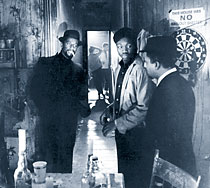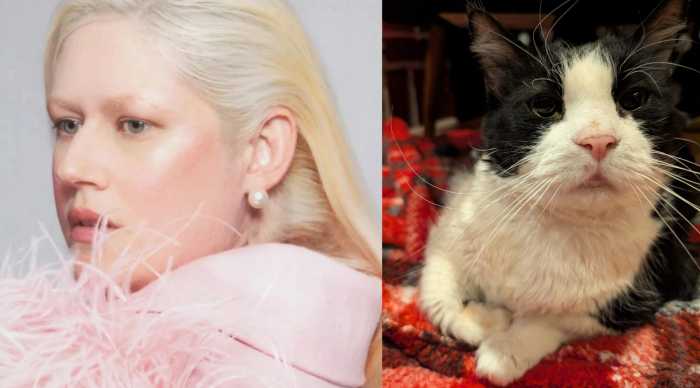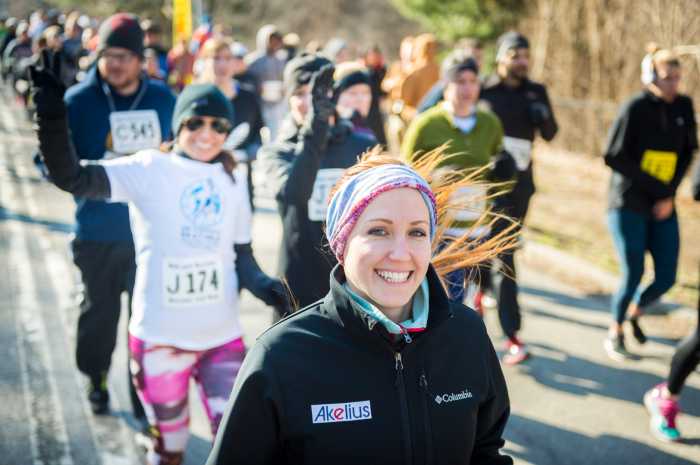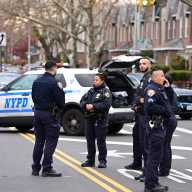The inclusion of the 1969 film "Lions
Love" in BAMcinematek’s retrospective, "A New World:
Shirley Clarke," seems odd at first. After all, the meandering
meditation on foiled Hollywood aspirations was directed by Agnes
Varda, not Clarke herself.
Given how rarely the latter director’s works are shown, the choice
to spotlight Clarke’s single foray into feature film acting may
initially strike many as an unnecessary nod to movie trivia in
this series, which runs Aug. 1-4. It’s easy to argue that audiences
would have been better served with a screening of the late auteur’s
"Portrait of Jason" (1967), her affecting biopic of
a boozy gay male hustler, or "Robert Frost: A Lover’s Quarrel
with the World" (1963), her Oscar-winning documentary. Surely,
either of those films would have done more to reassert Clarke’s
rightful place in the celluloid pantheon than "Lions Love,"
a single, dated anomaly.
The truth is that when it comes to her status as the kingpin
of American cinema verite, Clarke wasn’t dethroned so much as
derailed. A historical footnote today, the 1960s experimental
filmmaker was prevented from building on the promise of her early
groundbreaking work – "The Connection" (1961) and "The
Cool World" (1964) – because she wasn’t willing to relinquish
complete autonomy, and the studios weren’t willing to forfeit
final cut. A series of futile dialogues with Tinseltown execs
and B-movie bigwig Roger Corman left her emotionally spent and
artistically stymied.
With no way of graduating from arthouse to multiplex, she abandoned
the medium for video at a time (over a decade before the birth
of MTV) when small-screen technology was still relatively primitive.
"A New World" largely skips the subsequent period of
installations and interdisciplinary endeavors and concentrates
instead on Clarke’s undisputed glory days. As such, it recounts
the career trajectory of an upcoming visionary-in-the-making,
who was marginalized by the system.
A choreographer-turned-filmmaker, Clarke had an auspicious start.
Her dance shorts from the 1950s (screening Aug. 3) reveal a kinetically
adept approach to editing and an innate understanding of how
the picture frame could be akin to the proscenium. "Dance
in the Sun" (1953), her playful film of a Daniel Nagrin
solo, cuts from rehearsal studio to beach as if the two were
mirror worlds for dancing: the world, a stage; the stage, a world.
Her short "Bullfight" (1955) is even more astonishing
in how it adds assured gravity to Anna Sokolow’s preposterously
mimetic tribute to the matador by inserting the dancer-choreographer
as a spectator in the crowd scenes at an actual bullfight.
In "The Connection" (screening Aug. 1), the union of
reality and art is underscored anew. For this adaptation of The
Living Theater’s controversial heroin docudrama (and Clarke’s
first full-length film), she’s downright Pirandellian. The two
cameras double as specific characters’ points of view with the
male stand-in director of her pseudo-documentary both commenting
on the action and eventually participating with dire results.
With "The Cool World" (playing Aug. 2), a bleak look
at adolescent rites of passage in a Harlem street gang, Clarke
may no longer comment on the presence of the camera, but it still
feels like a living entity, panning wildly or observing skittishly,
like a single attentive observer.
Despite her indisputable mastery of mood and movement, however,
Clarke’s films feel consigned to their time. For all the outrage
it triggered upon its release, "The Connection" (like
many shocking artworks of yesteryear) registers as a quaint throwback
while the skeletal plot of "The Cool World" prevents
it from being a bona fide masterpiece.
Clarke was getting close to realizing a new kind of truth in
filmmaking but she never quite made the great leap in her features
that she made in documentaries. It’s no small coincidence that
"Skyscraper" (1959), her 20-minute tribute to the Tishmann
Building, which will be screened on Aug. 3, marks the only other
time she was nominated for an Academy Award. Her final major
work in this realm, the jazz biography "Ornette: Made in
America" (1985), took her 20 years to complete. ("Ornette"
is not included in BAM’s retrospective.)
So what happened?
Where did things go wrong?
That critical turning point, that sad story of shattered dreams,
is at the center of Varda’s tongue-in-cheek "Lions Love."
Boldly casting Clarke as herself (an East Coast filmmaker yearning
for West Coast success), Varda surrounds the doomed indie icon
with anti-establishment superstars like Andy Warhol’s Viva and
James Rado and Gerome Ragni, who wrote the book for the ’60s
counter-culture musical "Hair." Stridently whimsical
and emotionally flat, with gratuitous nudity, "Lions Love"
(which closes the series on Aug. 4) is one of those strange period
pieces that exasperates and charms simultaneously. You may feel
for the protagonist’s plight but you’re not really supposed to
care.
In one prescient stroke, Varda actually steps in for Clarke when
her muse refuses to enact a melodramatic plot turn. Ironically,
life ended up imitating art: Varda eventually usurped Clarke
as the international film world’s darling. Her "Vagabond"
(1985) was acclaimed worldwide as was "The Gleaners and
I" (2000).
Around the time of the former film, Clarke was cranking out a
couple of lackluster experiments with Sam Shepard and Joe Chaikin:
"Savage/Love" (1981) and "Tongues" (1982),
both screening Aug. 3. Awkward, affected, even amateurish, neither
possesses the stylistic ambition or political commitment that
typified Clarke at her peak. To the contrary, "Savage/Love"
uses cross fades like a student; "Tongues" incorporates
endless tricks and devices as if the videographer had grown restless
with the material and was hoping she’d stumble upon art or inspiration
by chance.
In the televised interview "Shirley Clarke: A Portrait"
(1970) (not screened here), a charismatic Clarke basks in her
success as she off-the-cuff aligns herself with Jean Luc Godard,
James Baldwin and Maya Deren. She doesn’t sound grandiose because
she probably could have been one of the greats if she’d found
an advocate in Hollywood. While future generations of artists
will likely look to her for inspiration, future audiences will
always find her a little disappointing.
"A New World: Shirley Clarke"
plays at BAM Rose Cinemas at 30 Lafayette Ave. at Ashland Place
in Fort Greene from Aug. 1-4. Tickets are $10. For more information,
visit the Web site at www.bam.org
or call (718) 636-4100.

























